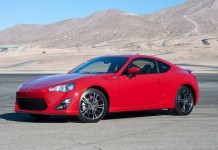While Toyota tries to maneuver its way out of problems tied to the carmaker’s massive safety recall, questions linger over how its woes will affect the U.S. economy and automotive industry.
A lot depends on whether fallout from the recall causes a big shift in market share — and whether that shift lands in the laps of U.S. manufacturers Ford (NYSE:F – News), General Motors and Chrysler.
If so, it could breathe new life into the U.S. auto industry, and perhaps lead to an increase in output and jobs. But a lot must change for it to happen.
“It’s going to take more than this for Toyota to lose a large chunk of its customer base,” said Peter Morici, a professor at the University of Maryland’s Robert H. Smith School of Business. “They’re going to have to keep making more mistakes. For now, the macroeconomic impact is not large.”
He and others figure rival carmakers will fill in the sales gaps while Toyota fixes its problems. They expect little impact on overall auto sales in the U.S.
Last month Toyota recalled 2.3 million vehicles in the U.S. because of faulty accelerator pedals. On Feb. 2, the company said it was suspending U.S. sales of eight of its most popular models — including the Camry, Corolla and Highlander — because of faulty gas pedals. Production at some parts plants has been suspended.
Elkhart, Ind.-based CTS Corp. made the accelerators at a plant outside of Toronto.
On Feb. 3, Toyota said it would recall an additional 1.09 million vehicles over floor mat problems. It may also have to recall 270,000 Prius hybrids due to faulty brakes, though a final decision has not been made.
For Toyota, the impact has been substantial. Its stock price is down nearly 19% since hitting a 17-month high of 91.97 on Jan. 19, even after Friday’s 4% rebound.
Toyota has more than 35,000 U.S. employees. Officials have said some jobs may be affected at plants in Alabama, Kentucky and West Virginia, though the company expects most workers to be at their jobs during the shutdown. Workers can also receive additional training or take vacation or unpaid leave, Toyota said.
So far the company has not altered its plans to open a Blue Springs, Miss., plant to build the Prius.
In addition, there are more than 1,400 Toyota, Lexus and Scion dealerships in the U.S. employing more than 115,000 people. Many of those dealers have little they can sell right now, though they are reportedly being besieged by calls from customers fretting over whether they should return or repair their cars.
Dealers have already started to repair defective gas pedals in millions of U.S. vehicles. Some are reportedly extending hours, making house calls and offering other services.
Toyota is giving U.S. dealers payments of up to $75,000 to help win back customers’ trust. Checks are being sent based on the number of cars each dealer sold last year. Dealers who sold fewer than 500 cars will get $7,500. Dealers who sold more than 4,000 will get $75,000.
Meanwhile, Toyota’s problems continue to pile up.
On Thursday, officials acknowledged a problem with the Prius brakes. The Transportation Department has opened a brakes probe into the hybrid’s 2010 model. On Friday, Toyota said there may be brake issues with some Lexus vehicles.
Sorry To Alarm You
Toyota President Akio Toyoda, grandson of the company’s founder, said Friday that he would set up a special quality-control task force to address the problems. He also expressed regret “that we have caused such concern.”
Toyota has estimated that the global gas-pedal recall would cost it $2 billion — $1.1 billion for repairs and $770 million to $880 million in lost sales. It expects to lose 100,000 in vehicle unit sales because of the recall fallout, with 80,000 of those in North America.
Toyota’s (NYSE:TM – News) U.S. January sales fell 16% year over year. Unit sales sank below 100,000 vehicles for the first time in more than a decade.
Toyota also lost market share as GM, Ford, Nissan (Other OTC:NSANY.PK – News) and Hyundai all notched double-digit sales gains. Meanwhile, Honda’s (NYSE:HMC – News) Accord dethroned the Toyota Camry as the best-selling car in the U.S.
Rivals like GM, Ford and Hyundai have been quick to respond to Toyota’s woes by offering incentives in the U.S. to woo Toyota owners.
For its part, Toyota is left playing defense after years as the industry aggressor.
“You can ruin a reputation in an instant that it took 30 years to build. Toyota has always stood for quality, so this hurts them,” said Steven Dyer, an analyst who follows Ford for Craig-Hallum Capital Group.
He expects Ford to benefit from Toyota’s problems, though he says it’s too early to gauge by how much.
“I don’t think it will be immediate, but something that will play out for the next several months,” Dyer said. “A lot depends on how Toyota deals with its problems. Right now the feedback seems to be that it hasn’t dealt with them well. We’ll just have to wait and see over the next couple of months.”
He has not yet changed his sales model due to the Toyota recalls.
Some experts figure Toyota’s problems won’t cause a big market shift over the long term. A recent report from Goldman Sachs said that while Ford is expected to gain some market share in coming months, much of that will come at the expense of GM and Chrysler.
“We expect a modest gain against foreign brands,” the report said.
According to a recent report from industry tracker Edmunds.com, Ford grew its share of the U.S. auto market last year — the first annual gain since 1995. Its share rose by 1.1 percentage points to 16% of all cars and trucks, mainly because it reported smaller losses than its rivals.
Ford’s U.S. auto sales fell 15.6% in 2009, Edmunds said. That compares with an industry decline of 21%. GM’s sales fell 30%, Chrysler’s dipped 36%, and Toyota’s and Honda’s sales each sank about 20%.
Sales To Climb Off 2009 Lows
Dirk van Dijk, director of research at Zacks Investment Research, expects the overall U.S. car industry to do better this year. But that’s mainly because 2009 was so bad.
“You’re talking about a 12-million-unit annual sales rate vs. a 17-million rate only a couple of years ago,” van Dijk said.
Billionaire investor Wilbur Ross told Reuters in January that he expected U.S. auto sales to grow by up to 1.5 million units in 2010 from the roughly 10.4 million units sold last year. He said U.S. sales of 13.5 million were achievable in 2011.
The question is how those sales totals might play out now that Toyota’s reputation has taken a beating.
“If there’s a market-share shift that goes to Honda or Hyundai, it’s not much of a big net impact on the U.S. industry,” van Dijk said. “If it’s being picked up by the Ford Fusion, then incrementally that will have a higher U.S. content to it. It’s probably too early to say.”
Job losses tied to a Toyota production shutdown may not be that big of a deal either, professor Morici says.
“Losing production has some employment effect, but you expect it will be made up with other car companies,” he said. “There certainly is the ability to make more cars over at GM and Chrysler.”







